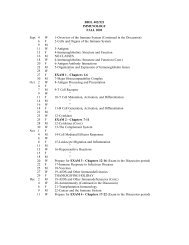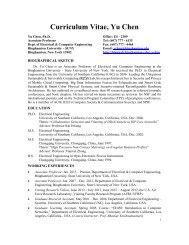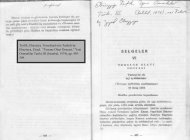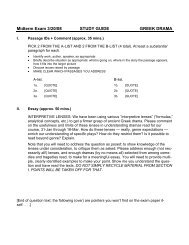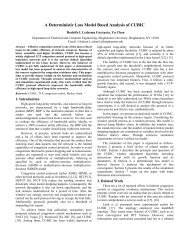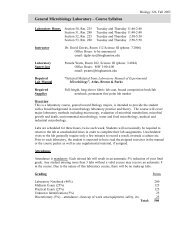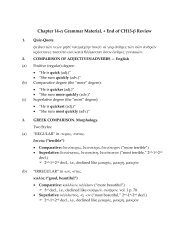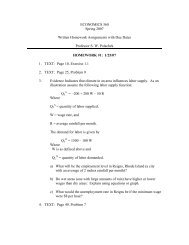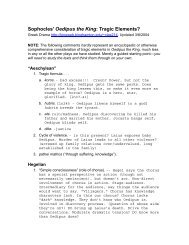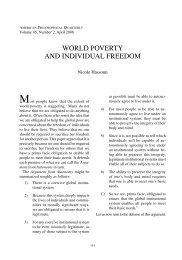Aristotle Poetics - Harvey.binghamton.edu
Aristotle Poetics - Harvey.binghamton.edu
Aristotle Poetics - Harvey.binghamton.edu
Create successful ePaper yourself
Turn your PDF publications into a flip-book with our unique Google optimized e-Paper software.
<strong>Aristotle</strong> <strong>Poetics</strong> 18<br />
moment) that the final resolution also should arise out of the plot itself, and not depend<br />
on a stage-artifice, as in Medea, or in the story of the (arrested) departure of the Greeks in<br />
the Iliad. The artifice must be reserved for matters outside the play—for past events beyond<br />
human knowledge, or events yet to come, which require to be foretold or announced;<br />
since it is the privilege of the gods to know everything. There should be nothing<br />
improbable among the actual incidents. If it be unavoidable, however, it should be outside<br />
the tragedy, like the improbability in Sophocles’ Oedipus the King.<br />
10<br />
But to return to the element of a characters temperament or nature, as tragedy is an imitation<br />
of characters better than the ordinary person, we in our way should follow the example<br />
of good portrait-painters, who reproduce the distinctive features of a person, and at<br />
the same time, without losing the likeness, make him handsomer than he is. The poet in<br />
like manner, in portraying people quick or slow to anger, or with similar infirmities of<br />
character, must know how to represent them as such, and at the same time as good men,<br />
as Agathon and Homer have represented Achilles.<br />
All these rules one must keep in mind throughout, and further, those also for such points<br />
of stage-effect as directly depend on the art of the poet, since in these too one may often<br />
make mistakes. Enough, however, has been said on that subject in my published writings.<br />
80 16<br />
20<br />
30<br />
Recognition (anagnorisis) in general has been explained already. As for the species of<br />
recognition, the first to be noted is (1) the least artistic form of it, of which the poets<br />
make most use through mere lack of invention, recognition by signs or marks. Of these<br />
signs some are congenital, like the “lance-head which the Earth-born have on them,” or<br />
“stars,” such as Carcinus brings in in his Thyestes; others acquired after birth—these latter<br />
being either marks on the body, for instance scars, or external tokens, like necklaces,<br />
or to take another sort of instance, the ark in the recognition in Tyro. Even these, however,<br />
admit of two uses, a better and a worse; the scar of Odysseus is an instance; the recognition<br />
of him through it is made in one way by the nurse and in another by the swineherds.<br />
A recognition using signs as a means of assurance is less artistic, as indeed are all<br />
such as imply reflection; whereas one bringing them in all of a sudden, as in the Bathstory,<br />
is of a better order.<br />
Next after these are (2) recognitions made directly by the poet. These are inartistic for<br />
that very reason; for instance, Orestes’ recognition of himself in Iphigenia: whereas his<br />
sister reveals who she is by the letter, Orestes is made to say himself what the poet rather<br />
than the story demands. This, therefore, is not far removed from the first-mentioned fault,<br />
since he might have presented certain tokens as well. Another instance is the “shuttle’s<br />
voice” in the Tereus of Sophocles.<br />
80 The <strong>Poetics</strong> comes from lecture notes published only after <strong>Aristotle</strong>’s death. Most<br />
of <strong>Aristotle</strong>’s work published during his life-time has been lost.



